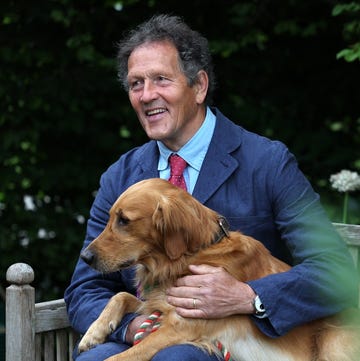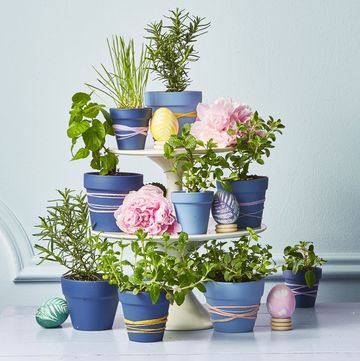If you ever find yourself gloomscrolling through social media, searching for emotional sustenance in the face of devastating grief, you’ll be confronted by endless posts that are very strongly grief-affirmative. Which sounds like a good thing, right? It was certainly seductive for me when my happy, healthy 21-year-old son, Jackson, died a sudden, accidental death in September 2023.
Losing my young adult child – a recent graduate with an exciting life unfolding ahead of him – meant the correct order of things was instantly upturned; I not only lost Jackson as a person in the here and now, but also his future, the rest of his life’s journey up until the end of mine. Watching our kids fly away optimistically into the rest of their lives is, after all, a parent’s payoff for raising them.
In the immediate aftermath of Jackson’s death, I found some comfort in the internet’s bottomless pool of grief content. Online, you can find everything from the obvious and potentially helpful (therapy, retreats) to absurd bling (your deceased’s ashes reconfigured as jewellery). Via cutting-edge tech, voice cloning and image manipulation, AI can almost persuade you the dead are still here, with us. A physics grad, Jackson had been hoping to work in AI: ‘You have no idea, Mum, just how much it’s going to change things!’ To which my response now is: ‘Mate, you literally had no idea’.
So, 18 months after Jackson’s death, here are 10 lessons I’ve learned about grief.
Beware the grief economy
The grief economy is there to capitalise on pain. It steals your soul – while happily affirming that you have one. Remember: the arc of your grief doesn’t contain hyperlinks. You can’t shop your way out of pain; however, that doesn’t mean you can’t shop parallel to it. From purchasing my son’s atom-shaped urn and buying books to commissioning an anime portrait of Jackson (in a scene from one of his favourite films, Spirited Away), I’ve bought stuff that makes me smile/weep, knowing it would make him smile/weep, too.
Nonetheless, to keep you in its algorithmic grip, social media will not encourage you to do anything other than stay exactly where you are, suspended, timelessly exploring your grief. Both you and your great pain (you’re encouraged to believe) are so uniquely special that your loss must be honoured ad infinitum. Eventually, however, you’ll want to move on from this mindset.
Navigating grief is hard work
In 2024, I navigated my daily grief alongside the rest of life: work, family, finances, getting the car insured and the boiler serviced, dealing with bad health – my own and others’, physical and mental – while tackling all the post-death ‘sadmin’ that exists for every modern dead person (yes, even youngsters without wills or probate). At the same time, I attempted to nourish my important friendships and relationships while handling the ending of others with as much grace and dignity as I was capable of mustering. Because…
Your other relationships go through a huge post-death learning curve
Some friendships – swiftly and unexpectedly, but also essentially – will fall by the wayside. Nobody sees this coming, so in order to cope, it’s necessary to dig deep while remaining very strong and ‘boundaried’.
I had to let go of a formerly very close friend just a few months after Jackson’s death – a process made harder by the fact that I’d recently supported them through their own tough emotional times. That they then turned out to be unable to accommodate mine is, ultimately entirely forgiveable and understandable. However, during a difficult encounter when I’d pointed out that I wanted to talk about Jackson as much as possible – ‘because I’m mourning the death of my son’ – this hitherto close friend pushed back, attempting to compete by deploying a Rubicon-crossing line: ‘And I’m mourning the death of my marriage!’
It was a step too far for me. Fact: if anybody is ever tempted to play grief Top Trumps, it’s worth knowing that the death of a child trumps a divorce.
‘Oh, yes,’ said one parent who also lost their child with whom I shared this experience, ‘just wait and see – your address book is going to be completely reconfigured.’
Look out for ‘soul leaps’
This is the stuff that makes living the rest of your life (and navigating others’) not merely ‘manageable’ but also fundamentally bigger and richer.
For example, even when you find yourself nearly broken by people’s personal failings, you’ll equally be blown away by the beauty, kindness and generosity of others. Look on this as a new cocktail to sip occasionally, for the rest of your life. And if the ‘old’ version of you – the one without a dead son, for example – was always a sunny caipirinha, it’s now perfectly okay to be an old fashioned.
I call these minor achievements ‘soul leaps’. And while I wouldn’t recommend following my own ‘creative’ approach for managing my grief – which was to put on a full-blown music festival (exceptionally beautiful but also stressful) – other ‘creative’ responses, such as setting up a ‘Jackson Peacock Prize for Physics’ and an annual charity football match were not only collaborative, rewarding and doable, but also just as potent a demonstration of my love and grief as ‘JackoFest’.
If you lose a young person, spend as much time as possible with their friends
Their relationship with the person you loved will help you to heal. Plus, you’ll discover things about your child that you might never have learned otherwise. This may make you laugh or cry, but it will also enrich your post-death ‘relationship’ with the person you already thought you knew.
There’s life after death
Even tragic loss doesn’t mean that every minute of every day needs to feel like the proverbial end of the world. And if it does, maybe ask yourself why that is.
Because, quite simply, there’s a life to be had after death – even after the most unexpectedly shocking loss. It’s just that this is a completely different life to the one we’d hoped for.
And there’s unexpected joy to be found in this new life, too. The musician Nick Cave – who lost two of his sons – spoke about this movingly on Desert Island Discs, describing it as grief’s ‘terrible secret’.
Remember your child was human
Though you often miss your child so much it feels as if your heart will explode, try to hold on to the fact that they were, sometimes, a complete and utter pain. Taking them down from an ‘angelic’ pedestal helps to navigate the difference between our genuine, heartfelt love for a real person (who now happens to be physically dead) and the powerfully sentimental ‘grief grift’ that will inevitably chase your metaphorical ambulance.
You’re a proper grown-up now
The ongoing successful navigation of great loss – and profound pain – marks you out as an adult. Own it.
Ask your dead person for help
If you have faith, then pray. If you don’t, find spaces to ‘chat’ to your person.
For example, several times a week I’ll suddenly glance at my phone and see that it’s 11.11am. My ‘lucky’ numbers have always been multiples of 11, so I take a minute to focus on Jackson and send him my love. This becomes a meditation that, at the very least, leads to a place of quiet, calm connectivity.
At the very most, it can take you somewhere beyond that…
These are the moments when I’m able to acknowledge that while my extraordinary son was a gift in life, he remains an equally extraordinary gift in death. A gift, indeed, that keeps on giving.
The moments when I feel most sad are when I feel most connected to Jackson. Moments in which I mutter, ‘Love you, Sausage. Miss you so much,’ and I feel his arms around me (I don’t), whispering (he isn’t), ‘You know what, Marge? You’re still a crazy old lady, but you’re smashing this…’














